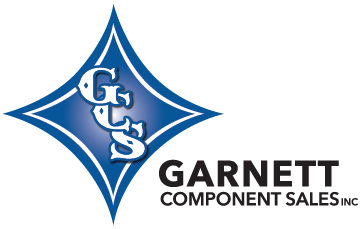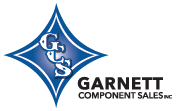SPRINGS: COMPRESSION, EXTENSION, AND TORSION
PRECISION • INNOVATION • DEDICATION
DETAILS / INDUSTRIES SERVED
PRECISION • INNOVATION • DEDICATION
DETAILS
CERTIFICATIONS
ISO 9001:2015
IATF 16949
available upon request
COUNTRY OF ORGIN
United States
Mexico
MATERIAL
High-carbon steel
Stainless Steel
Phosphor Bronze and Brass
Alloy Steel
ENGINEERING
2D PDF
3D Models
File Types
.STP
.IGES
CAD
SAMPLING PROCESS
PPAP FAI (First Article Inspection)
LEAD TIME
To Be TBD/ARO
INDUSTRIES SERVED
PHARMA & MEDICAL
INDUSTRY
CONSUMER
AUTOMOTIVE
PROCESS
PRECISION • INNOVATION • DEDICATION
COMPRESSION SPRINGS
Springs are mechanical devices designed to store and release energy, resist forces, or maintain tension in systems. They come in various types, with compression, extension, and torsion springs being the most common. Each type is suited to specific applications and operates based on unique mechanical principles.
COMPRESSION SPRINGS
Compression springs are open-coil helical springs designed to resist compressive forces and return to their original length when the force is removed.
Characteristics
- Made from round, square, or rectangular wire.
- Typically cylindrical but can also be conical, barrel-shaped, or other custom designs.
- Operates by shortening under load and returning to its original length when the load is removed.
Applications
- Automotive: Suspension systems, valve springs.
- Industrial: Shock absorbers, vibration dampers.
- Consumer Products: Ballpoint pens, mattresses.
Advantages
- Simple and reliable.
- High durability and resistance to compressive forces.
- Wide range of customization options for stiffness and size.
APPLICATIONS OVERVIEW
Spring Type Key Function Typical Applications
Compression Spring Resists compressive forces Suspension systems, shock absorbers, valve springs
Extension Spring Resists tensile forces Garage doors, trampolines, brake systems
Torsion Spring Provides rotational force Hinges, clothespins, ratchets
Advantages of Springs
- Energy Efficiency: Stores and releases energy effectively.
- Versatility: Works in tension, compression, or torsion.
- Customization: Adjustable properties for specific applications.
- Durability: Resists repeated loading and unloading.
Considerations for Spring Selection
- Load Requirements: Determine the forces the spring will need to handle.
- Environment: Consider exposure to corrosion, temperature, or chemicals.
- Size Constraints: Ensure the spring fits within the design envelope.
- Fatigue Life: Design for long-term reliability under cyclic loads.
CUSTOMIZING SPRINGS
Springs can be tailored to specific applications by adjusting:
- Wire Diameter: Affects spring strength and flexibility.
- Coil Diameter: Influences load capacity and spring rate.
- Number of Coils: Impacts stiffness and maximum deflection.
- Material: Determines durability, corrosion resistance, and temperature tolerance.
Spring Terminology
- Spring Rate (k): The force required to compress, extend, or twist the spring by a unit distance.
- Load: The force applied to the spring.
- Deflection: The distance a spring moves under load.
EXTENSION
EXTENSION SPRINGS
Extension springs are tightly wound helical springs designed to operate with a tensile (pulling) force. They stretch under load and return to their original shape when the load is removed.
Characteristics
- Hooks, loops, or other ends are used to attach the spring to components.
- Requires initial tension to keep coils tightly wound when not in use.
Applications
- Automotive: Trunk lids, brake systems.
- Industrial: Door hinges, garage door mechanisms.
- Consumer Products: Trampolines, toys.
Advantages
- Provides controlled tension in systems.
- Durable and customizable for specific tensile loads.
APPLICATIONS OVERVIEW
Spring Type Key Function Typical Applications
Compression Spring Resists compressive forces Suspension systems, shock absorbers, valve springs
Extension Spring Resists tensile forces Garage doors, trampolines, brake systems
Torsion Spring Provides rotational force Hinges, clothespins, ratchets
Advantages of Springs
- Energy Efficiency: Stores and releases energy effectively.
- Versatility: Works in tension, compression, or torsion.
- Customization: Adjustable properties for specific applications.
- Durability: Resists repeated loading and unloading.
Considerations for Spring Selection
- Load Requirements: Determine the forces the spring will need to handle.
- Environment: Consider exposure to corrosion, temperature, or chemicals.
- Size Constraints: Ensure the spring fits within the design envelope.
- Fatigue Life: Design for long-term reliability under cyclic loads.
CUSTOMIZING SPRINGS
Springs can be tailored to specific applications by adjusting:
- Wire Diameter: Affects spring strength and flexibility.
- Coil Diameter: Influences load capacity and spring rate.
- Number of Coils: Impacts stiffness and maximum deflection.
- Material: Determines durability, corrosion resistance, and temperature tolerance.
Spring Terminology
- Spring Rate (k): The force required to compress, extend, or twist the spring by a unit distance.
- Load: The force applied to the spring.
- Deflection: The distance a spring moves under load.
TORSION
TORSION SPRINGS
Torsion springs store rotational energy and exert torque in response to twisting forces. These springs work by twisting the spring body rather than compressing or extending it.
Characteristics
- Typically wound in a helix, with arms or legs that exert force when rotated.
- Can be used in clockwise or counterclockwise directions.
Applications
- Automotive: Hood and trunk hinges.
- Industrial: Clothespins, ratchets.
- Consumer Products: Mousetraps, window shades.
Advantages
- Compact design for rotational force.
- Highly customizable for specific torque requirements.
Materials Used
- Music Wire: High-carbon steel for general-purpose springs.
- Stainless Steel: Corrosion-resistant for marine, medical, or food applications.
- Phosphor Bronze and Brass: Electrical conductivity for switches and relays.
- Alloy Steel: High strength for heavy-duty applications.
APPLICATIONS OVERVIEW
Spring Type Key Function Typical Applications
Compression Spring Resists compressive forces Suspension systems, shock absorbers, valve springs
Extension Spring Resists tensile forces Garage doors, trampolines, brake systems
Torsion Spring Provides rotational force Hinges, clothespins, ratchets
Advantages of Springs
- Energy Efficiency: Stores and releases energy effectively.
- Versatility: Works in tension, compression, or torsion.
- Customization: Adjustable properties for specific applications.
- Durability: Resists repeated loading and unloading.
Considerations for Spring Selection
- Load Requirements: Determine the forces the spring will need to handle.
- Environment: Consider exposure to corrosion, temperature, or chemicals.
- Size Constraints: Ensure the spring fits within the design envelope.
- Fatigue Life: Design for long-term reliability under cyclic loads.
CUSTOMIZING SPRINGS
Springs can be tailored to specific applications by adjusting:
- Wire Diameter: Affects spring strength and flexibility.
- Coil Diameter: Influences load capacity and spring rate.
- Number of Coils: Impacts stiffness and maximum deflection.
- Material: Determines durability, corrosion resistance, and temperature tolerance.
Spring Terminology
- Spring Rate (k): The force required to compress, extend, or twist the spring by a unit distance.
- Load: The force applied to the spring.
- Deflection: The distance a spring moves under load.
PROFESSIONAL CERTIFICATIONS


MEMBER ASSOCIATIONS

CONTACT A GCS REP IN YOUR AREA
TOMMY GARNETT
919-801-4627 | tommy@gcsrep.com
Territories: SC, FL
ARTIE SMITH
919-475-4775 | artie@gcsrep.com
Territories: VA, NC
MARK SNYDER
678-699-9152 | mark@gcsrep.com
Atlanta, GA
KEN MARBERT
919-562-5158 ext. 708
ken@gcsrep.com
Territories: LA, GA
CHARLES CUNNINGHAM
270-418-5360
charles@gcsrep.com
Territories: KY, TN
ANGELA GARNETT
919-917-5824 | angela@gcsrep.com
Operations Manager
KELLY MCGEE
919-562-5158 ext. 703
kelly@gcsrep.com
Business Development
Support All States
RICARDO MALACARA
+52-331-799-9897 | ricardo@gcsrep.com
Territories: Guadalajara, Mexico
GERMAN DOMINQUEZ
+1 915-843-9391 | german@gcsrep.com
Territories: Juarez, Mexico
AGUSTINE PIMENTEL
+915-491-2810 | agustine@gcsrep.com
Territories: Juarez, Mexico


